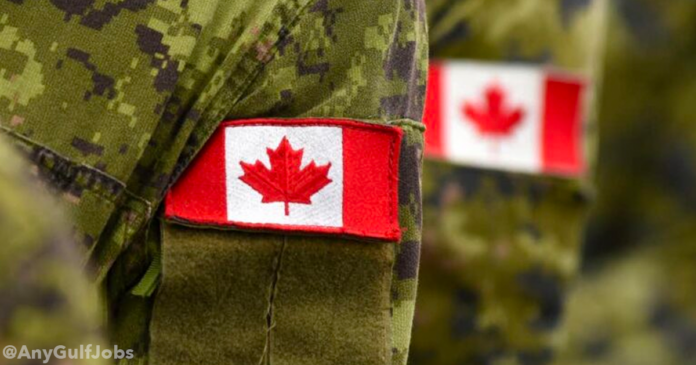Members of Canada’s military are struggling to keep up their morale as the cost of food and housing takes a toll on their mental health and desire to stay in the Canadian Armed Forces (CAF).
More and more members of the CAF are relying on the help of others to cope with the high cost of living, according to a briefing note sent to the defence chief of staff, Gen. Wayne Eyre, by the military’s chaplains.
Nonprofits like Together We Stand help support military families. Their donations are expected to double this year, reads the chaplains’ note. These donations will only provide a temporary solution, however.
The military’s housing allowance has undergone certain changes recently, including basing it on salary rather than location. This has presented new problems for soldiers depending on where they are posted.
The change has led to some wanting to be released from the military so they can avoid being posted in unaffordable locations.
An estimated 28,000 soldiers will have access to the new program but as many as 7,700 members could become ineligible with thousands of others facing a reduction in their monthly payments.
Military officials say that the new program will save the CAF $30 million annually.
The previous housing benefit started being phased out in August so that members who are set to lose payments will have some time to cope with the loss.
Those no longer qualifying under the old housing benefit will still receive some payments until July 2026. However, the increasing cost of living is making it difficult for members to stay afloat financially, even with the reduced benefits.
“Of special note are those members who made financial commitments in 2022 at the height of the housing market, or after receiving posting instructions in early 2023: some are now facing significant challenges to meet their financial obligations or to find appropriate housing,” reads the memo.
In addition to a descending morale, staff shortages at bases and wings have led to “ever-present” workplace conflicts and a tense environment, especially surrounding the differing rules about working from home for military and civilian staff.
“In understaffed environments where normal operations must be maintained, reconstitution is basically being looked upon now as just another word, rather than as something that will revitalize the CAF mission and make a real difference in the professional lives of members,” the note added.
The note also addressed a new performance evaluation process introduced by the CAF that was met with a negative response by members who said that the system had glitches and that it took too long to implement, according to City News.
The system has “strained relationships with subordinates” who are feeling that their work goes unappreciated even as they take on additional duties due to staffing shortages.
However, members did say that they felt their workplace had become “psychologically safer” than it was previously and that they now feel more comfortable communicating issues with their chains of command.
Other positive feedback from members included being able to take more time off to observe religious holidays as well as changes that were made to the dress code, in particular from female members, who felt the change allowed them to express their individuality more.
However, changes made to the dress code have also received criticism from some members who say it might “be eroding a sense of common mission, identity and team cohesion.”
“The pace and extent of change within the CAF impacts many areas of military life concurrently, including benefits, evaluation and culture. Though unintended, these changes, concurrent with CAF efforts to reconstitute the force, has resulted in many CAF leaders and members feeling more undervalued and underappreciated than at any point in recent memory,” concluded the note.
Information included in the briefing note was collected over a six-month period by chaplains throughout the CAF and given to Gen. Eyre last month.
